Right-hand man
Speaking to Thanh Nien , Director of the Department of Publishing, Printing and Distribution Nguyen Nguyen commented: "The impact of AI on the Vietnamese publishing industry today is fierce, because AI intervenes too deeply in the creative process, making the most obvious changes in the relationship between creativity and the public. Therefore, many people are concerned that AI will overwhelm creativity, and with that comes the story of creative copyright, while publishing lives, develops, and operates based on copyright protection."

Works of writer Thien Son
Photo: NVCC

Writer Thien Son
But the leaders of the Vietnamese publishing industry also believe that, fundamentally, AI support should first be considered a powerful assistant. By changing the rules of the game, the way of playing from the creative stage to the management stage..., AI is clearly helping to standardize and optimize the publishing process; increase productivity, save time and human resources in the raw data processing stages; reduce production costs; help publishers innovate their operating methods, eliminate mediocre products, bring personalized experiences to users... In short, it is redefining the entire value chain of the publishing industry.
Calmly accepting this "tsunami", translator Luc Huong (real name Nguyen Xuan Minh) assessed the positive aspects of AI: "It must be admitted that large language models (LLM) such as Chat GPT, Gemini have a larger vocabulary than any translator. Many idioms and expressions that previously required a lot of research, or only people who lived in the native language could understand, can now be explained by AI, given examples of use... with just one click. Or AI can simplify an extremely complex sentence, giving dozens of different translation options in just a few seconds so that we can grasp the meaning of that sentence. If translators exploit these capabilities well, the translation work will be greatly supported."
From the perspective of a writer, specializing in historical novels, writer Thien Son also admits that compared to the previous difficult process of searching for historical documents, this has now been significantly supported by AI (of course, it still needs to be carefully verified, especially with non-fiction books).
Researcher Nguyen Truong Quy, author of many elaborate research books about Hanoi , also noted: "If AI is used as a teaching assistant or helper to practice an operation to enhance knowledge synthesis or provide solutions from the database of that knowledge, it will be useful! If the information is searched accurately, with clear sources, then of course the researcher or writer does not have to waste time going to the library to open each book one by one, or search thousands of pages to find what they need. With the field of creative books, it is possible that AI can create situations or possibilities of developments, scenarios in many different ways...".
Malignant loops
But if AI is abused, used indiscriminately, and without verification, it is a double-edged sword that can cause serious "damage" to the publishing industry, especially in the copyright issue, a painful problem in Vietnam, especially in the era of ebooks and audiobooks. The strong development of AI also poses many challenges to professional ethics for creators in particular and publishers in general, facing the risk of creating mass or derivative products, turning copyright stories into jokes, causing writers and readers to lose faith and further eroding creative identity, threatening reading culture and disrupting the labor ecosystem in the publishing industry...

A work by writer and researcher Nguyen Truong Quy

Writer and researcher Nguyen Truong Quy
As long as AI is completely dependent on "ready-made food" which is big data, AI is still not 100% reliable enough for creators and researchers. "I am very wary of AI at the present time because this type of software does not have the ability to filter accurate information and often provides additional fake information, comments like "expressing feelings" in an unreasonable way," said researcher Nguyen Truong Quy. "The downside is that it eliminates our motivation to self-acquire knowledge on that arduous path. Now, once we look up the results, there is a very high possibility that our brains will be satisfied and quickly forget the paths to find that information...", he added.
Writer Thien Son maintains faith in the unique values of creativity: "Currently, AI itself cannot threaten authentic literature. It can assist in searching for documents and consulting on situations. But those are only at the universal level, the value of the work does not lie in the universal but in the unique".

Translator Luc Huong
Translator Luc Huong said: "After 3 years, although AI models have progressed rapidly, I personally still believe that translating literary works should still be a human job. The emotional connection between the author - translator and reader is something that an AI translation probably cannot do at this time. Another point is that AI still has many disadvantages in terms of accuracy, uncontrolled additions, consistency...".
"AI is a very powerful tool, a tireless assistant in researching, searching, and synthesizing information. If used properly, we can shorten a lot of time and save a lot of human resources. But if we do not have a solid enough foundation of knowledge and critical thinking, it will be easy to get caught up in it, causing the vicious cycle of "AI looking up AI, AI evaluating AI" to repeat itself over and over again, gradually pushing the publishing industry astray...", translator Luc Huong worries.
Source: https://thanhnien.vn/ai-tro-thu-hay-doi-thu-185251010230536528.htm


![[Photo] Ho Chi Minh City is brilliant with flags and flowers on the eve of the 1st Party Congress, term 2025-2030](https://vphoto.vietnam.vn/thumb/1200x675/vietnam/resource/IMAGE/2025/10/10/1760102923219_ndo_br_thiet-ke-chua-co-ten-43-png.webp)
![[Photo] General Secretary attends the parade to celebrate the 80th anniversary of the founding of the Korean Workers' Party](https://vphoto.vietnam.vn/thumb/1200x675/vietnam/resource/IMAGE/2025/10/11/1760150039564_vna-potal-tong-bi-thu-du-le-duyet-binh-ky-niem-80-nam-thanh-lap-dang-lao-dong-trieu-tien-8331994-jpg.webp)

![[Photo] Opening of the World Cultural Festival in Hanoi](https://vphoto.vietnam.vn/thumb/1200x675/vietnam/resource/IMAGE/2025/10/10/1760113426728_ndo_br_lehoi-khaimac-jpg.webp)


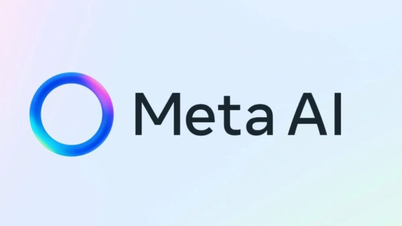

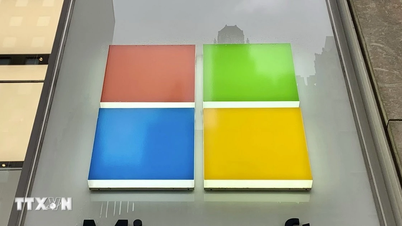


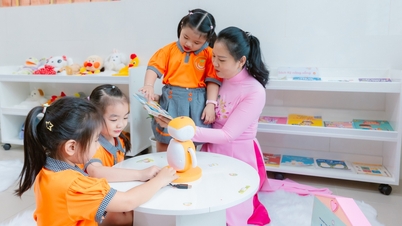
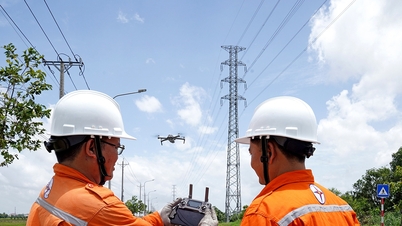

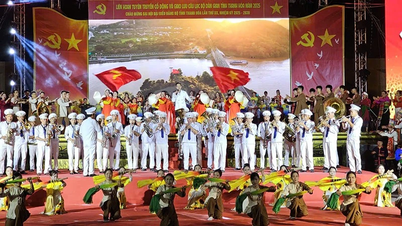





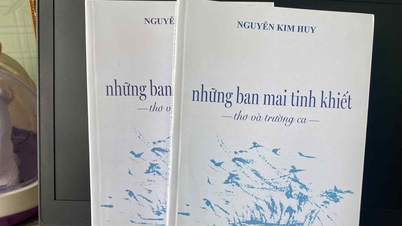

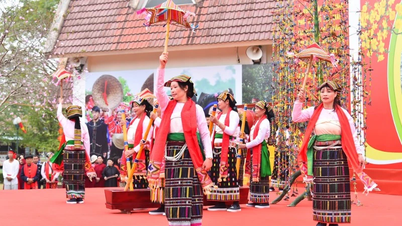




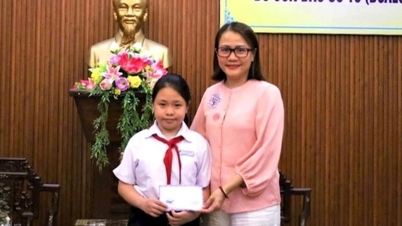


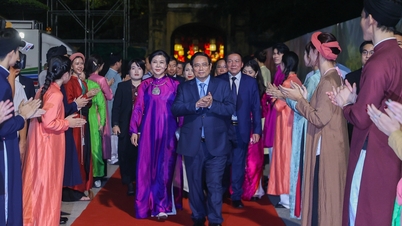

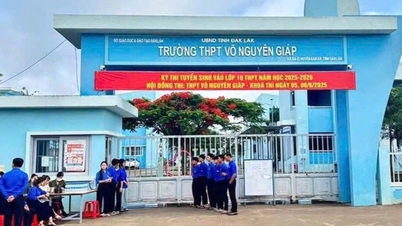






































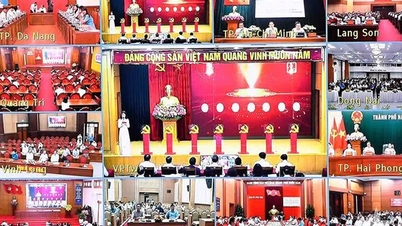




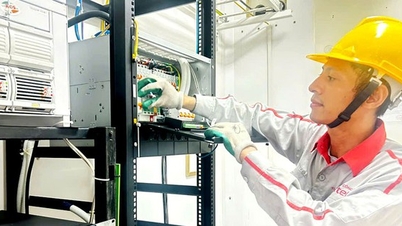
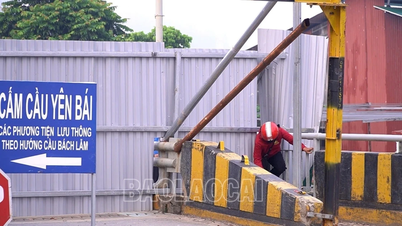

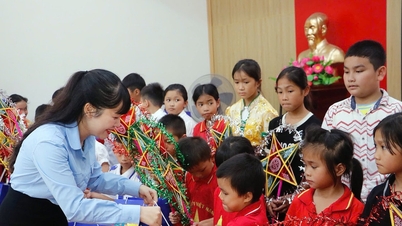

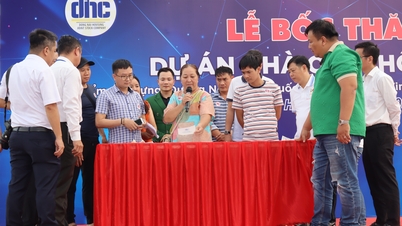


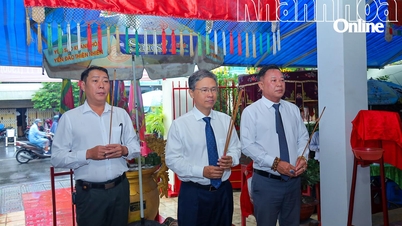
















Comment (0)